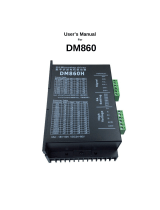
Valve config
Valve configuration Application 1: Set from AK-PC except if the valve type is set to User Defined in AK-PC,
then it is according to below list (see Application mode 2).
Application 2:
0 = no valve, 1 = UserDef,
2 = ETS 12C, 3 = ETS 24C, 4 = ETS 25C, 5 = ETS 50C, 6 = ETS 100C,
7 = ETS 6, 8 = ETS 12.5, 9 = ETS 25, 10 = ETS 50, 11 = ETS 100,
12 = ETS 250, 13 = ETS 400,
14 = KVS 2C, 15 = KVS 3C, 16 = KVS 5C,
17 = KVS 15, 18 = KVS 42,
19 = CCMT 0, 20 = CCMT 1,
21 = CCMT 2, 22 = CCMT 4, 23 = CCMT 8,
24 = CCMT 16, 25 = CCMT 24,
26 = CCMT 30, 27 = CCMT 42,
28 = CCM 10, 29 = CCM 20, 30 = CCM 30, 31 = CCM 40
32 = CTR 20
Fac: no valve
Valve fallback OD During fail-safe mode in application 1 (e.g. CANBUS signal lost), the valve will apply this
opening degree.
0 – 100%
Fac: 0%
Valve motor type Define a type of motor used in the stepper valve (Unipolar/Bipolar). Unipolar / Bipolar
Fac: Unipolar
Valve drive current The current applied to each phase of the stepper motor during actual valve movement.
Entered as a peak value.
10 – 1000 mA
Fac: 10 mA
Valve step
positioning
Read-out of the valve opening degree in number of steps.
Valve total steps The number of steps that correspond to changing the valve position from 0 – 100% OD. 1 – 8000 steps
Fac: 1 step
Valve speed The desired valve drive rate in steps per second.
Please note that a higher valve speed will produce a lower torque. If the valve is used in
systems having high differential pressure, it is better to operate the valve with a lower
step rate.
10 – 400 pps
Fac: 10 pps
Valve start speed This is used to limit the starting speed of the valve in order to provide higher motor
torque at start-up to prevent the valve from potential step loss.
1 – 100%
Fac: 20%
Valve emengency
speed
During power failure conditions, the valve can be driven at higher speed when required
to close faster. This function requires a back-up battery connected to the EKE.
50 – 200%
Fac: 100%
Valve acceleration
current
These features are used with valves running at higher speed i.e 300 pps and above.
Typically, at start-up high torque is required to operate the valve. The high torque at
start-up can be maintained by using acceleration current as required.
100 – 150%
Fac: 100%
Valve acceleration
time
10 – 150 ms
Fac: 10 ms
Valve holding current The percent of the programmed Max Phase Current that should be applied to each
phase of the stepper output when the valve is stationary. If required, this current
ensures that the valve maintains its last programmed position.
0 – 300%
Fac: 0
Valve step mode Stepper motor can be driven with various step excitation methods, depending on valve
requirements and operating conditions.
The valves can be driven in full step 1/1, half step 1/2, or in microsteps (1/4, 1/8, 1/16).
Full, Half, 1/4, 1/8, 1/16
Fac: 1/8
Valve duty cycle The required valve duty cycle can be set between 5-100% using this parameter. 5 – 100%
Fac: 100%
Valve OD during stop The valve will apply this opening degree if the control is stopped (main switch off). 0 – 100%
Fac: 0%
Start backlash The parameter defines the operation of the start backlash function. The valve will
normally open from this point onwards.
0 – 50%
Fac: 0.0%
Compensation
backlash
This setting is used to correct for mechanical hysteresis of the valve’s designs including a
reduction gear. To ensure that the gear backlash is at a minimum, the motor will drive a
number of extra steps every time the direction of the motor is changed.
0-10%
Fac: 0.0%
Overdrive When the overdrive is enabled and the block timer has expired, next time the valve
closes to 0% OD, it will close with some extra steps according to this setting.
0 – 20%
Fac: 5.0%
Overdrive enable OD After being closed, the valve opening degree must exceed this value before the
overdrive function is enabled again.
0 – 100%
Fac: 0%
Overdrive block time After an overdrive has occurred, the overdrive function may not occur again within this
time.
0 – 1440 min.
Fac: 10 min.
Valve excitation time
after stop
The time that the drive current is applied after the motor has stopped before going to
holding current. This will make sure that the valve has achieved the final position before
going to holding current.
0 – 1000 ms
Fac: 10 ms
User Guide | Stepper Valve Extension Module, Type EKE 1P
© Danfoss | DCS (vt) | 2019.12 BC320219567793en-000102 | 9




















